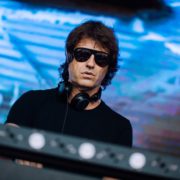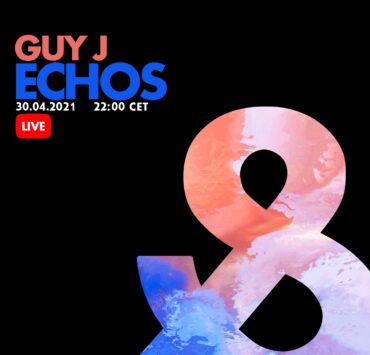He grew up hugging a Winco without imagining that he would play music one day for thousands of people; in June his autobiography The DJ’s Dream will be published.
The first thing Hernan Cattaneo said when we asked him to edit his biography was: ,,Are they sure? My life is boring, nah, I’m not much interesting.”
How could it be true if he was the first Argentine DJ to perform at the most famous clubs and festivals, if he won all possible awards, and is respected by the old guard and also by the younger ones? And the VIP parties? What about drugs? And the girls?
Father of a family, monogamous, heterosexual, almost abstemious, orderly in sleep and even in meals, with the only vice of cake Rogel, Cattaneo insisted: ,,I think I can contribute only one idea: when you have a passion, your whole life is in order. In my case, sharing music is the only thing that I wanted to do since I was 15 years old. I was never talented, but I was consistent. If that can help someone to dedicate themselves to what they love, then let’s do the book.”
The Argentine DJ built an international career contrary to what is expected of a pioneer and benchmark in electronics: no drugs, no alcohol, no lack of control.
We are sorry for those of us who feared that the project would fail. There are already many interesting people’s books; instead, the story of the vinyl nerd could be more interesting to tell. In my role as a ghostwriter, for more than two years I interviewed him until he was exhausted, I attended work meetings, I was at his house, I met his surroundings, I copied his Spanglish, I danced in his two shows at the Polo Field, I mimicked everything that I could be, even in writing, Hernan Cattaneo, the one who always knows how to make himself heard, with subtlety, with patience, in his own rhytm that enveloped the world and made him one of the few global DJ’s capable of selling tickets up to soldout the United States, Holland, Japan, Russia, Ecuador or Morocco. Cattaneo sounds everywhere.
Rocking horse in black and white
As in any biography, for The DJ’s Dream (this is the name of the book which will be published in June by Editorial Planeta) we started with childhood and already in those first steps, not to mention crawling, memories appeared next to the Winco, the most popular music player of the time. His sisters Mercedes and Ana Maria were going to elementary school, they came back and Hernan was still in the same place: next to the record player. He stayed at home because kindergarten was not compulsory, he just went to preschool. What did Hernan and his mother do during those five years, all day long? With no babysitter, no internet, no cell phone games, not even color television, surely Mum Yvonne spent hundreds of boring afternoons with the use of vinyl. When a plan with a little boy works, what better than to repeat it every day? The double question, then, appeared with that image.
When Cattaneo was a boy, the world was so different that there were not much other activities, nor were there so many pedagogical, sports or recreational proposals for free time. In the mid-1960s (he was born in 1965), children did not have such a leading place in the collective society. They were not such a coveted target by brands, nor was there too much information about their psychology, and that was the best thing that could happened because a musical seed was being sown. But that’s how it was.
”When you have a passion, your whole life is in order. If that can help someone to dedicate themselves to what they love, then let’s do the book”, Hernan Cattaneo replied when the author of this note proposed to him to be the ghostwriter of The DJ’s Dream.
At age 6, an aunt arrived on March 4 for Hernan’s birthday with Willy and the boys from Creedence Clearwater Revival. ,,That day I not only met great songs, I also learned that there were boys with black skin. Over the next several years, I spent hours watching them on the cover as the record went round and round.”
Years passed and the Cattaneo’s on the ground floor became friends with the Marchetti family, on the 13th floor. In that apartment, Hernan found a guide (Adolfo, the father) and also a partner: Pablo, the same age. Adolfo was an audiophile, a sound retailer. He introduced him to the world of picks of world music, prestigious jazz festivals, such as Montreal. In the living room on the 13th floor, there was such modern equipment that he left his Winco in a sad and sheltered place. ,,For years I begged my dad to upgrade the record player. When he did, we started playing music with Pablo. We put our teams against each other and each one chose a theme, just like the back to back (B2B) we do now with other DJ’s. My mother helped me organize the first rounds, which were obviously an excuse that we invented with Pablo to pass our records.”
In the following years he played music at parties of 15, at the Italian Club, at weddings or wherever he was called. ,,I went with a box of 100 records everywhere and I had to arrange them. They would ask me for something from the 60s and I’d play Los Twists”, he laughs, now that his studio doesn’t have an inch left to save records and the digital format, there’s no longer discussions. When he managed to finish high school, after more than one attempt to drop out, there were no more delays. He dedicated himself fully to his career and, with less than 20 years, he entered a new challenge: the rooms of the discos.
From club to club
The initial experience in Caballito was so intense that different friends appear in subsequent chapters. For example, two of them, with the newly arrived democracy, opened a little bolichito (Filia), near Plaza Las Heras, and offered to take charge of the show. Hernan obviously agreed. He worked from Thursday to Sunday, the rest of the days he went to practice. Filia became his laboratory: he tried hooks, new songs, everything was well received, the space was always full of friends.
Another acquaintance from the neighborhood, Flaco Carli, worked as a ship’s assistant and was in charge of bringing him some records from the United States, especially the maxis, that extended and danceable version of the best-known songs. ,,That kind of material made the difference between a DJ and a music fan. There weren’t many maxis here, that’s why I traveled so much to Brazil, with another friend from the Italian Club, Julio Lugones. El Flaco Carli brought me some records that he had written down on a list and others that the seller thought I might like.”
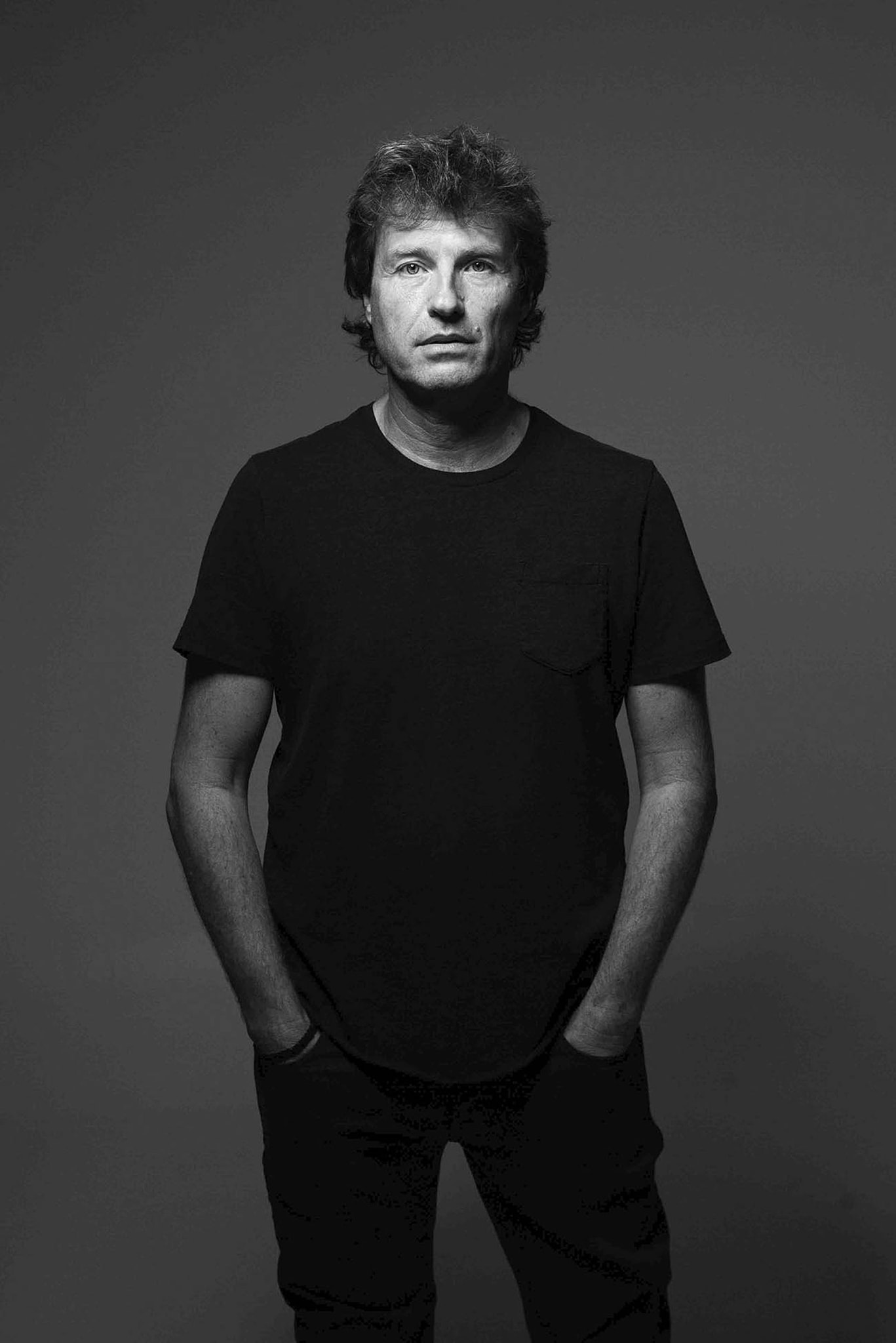
Hidden in that treasure was the track that would change Cattaneo’s life: the first house recording he ever heard. It was a compilation of Frankie Knuckles (his greatest idol). From then on, this genre became his flag, his obsession.
The partners who had opened Filia formed a new partnership to take over a huge premises in which a cinema had operated, on Córdoba Avenue, a few meters from Canning. They called the club ”Cinema” and the first decision was to leave the screen for projections. The second was to summon Cattaneo. That was already another level: fixed salary, great sound equipment, dancers on stage, advertising flyers that spread the events and the name of the DJ that appeared, maybe he would end up getting some invitations. ,,Cinema opened in October 1988 and became the third largest club in the city, behind New York City and Paladium. I felt that I was up to date musically, we proudly said that we were the only ones with a house music suggestion.”
As in Filia, he practiced all week at empty club, he also had show on the modern FM Z95; in his own way, he was completely dedicated to music and that fledgling electronic scene. At the beginning of 1991 he sold almost all his belongings to pay the ticket and to see New York, London, Manchester. Oh surprise, house occupied the main places in record stores, it had sent rock underground. Everyone wanted to hear what he did, Hernan couldn’t believe it. In Buenos Aires, there was still a place missing, that would bring together the hundreds of fans that the genre had, all those people who wanted to go dancing, who were not interested in early getting up, drunk or shouting among friends. There was no club that put the electronic musical suggestion above all else, in comfortable spaces, near the river. ,,Until Pachá arrived”, he says. Guess who was the DJ.
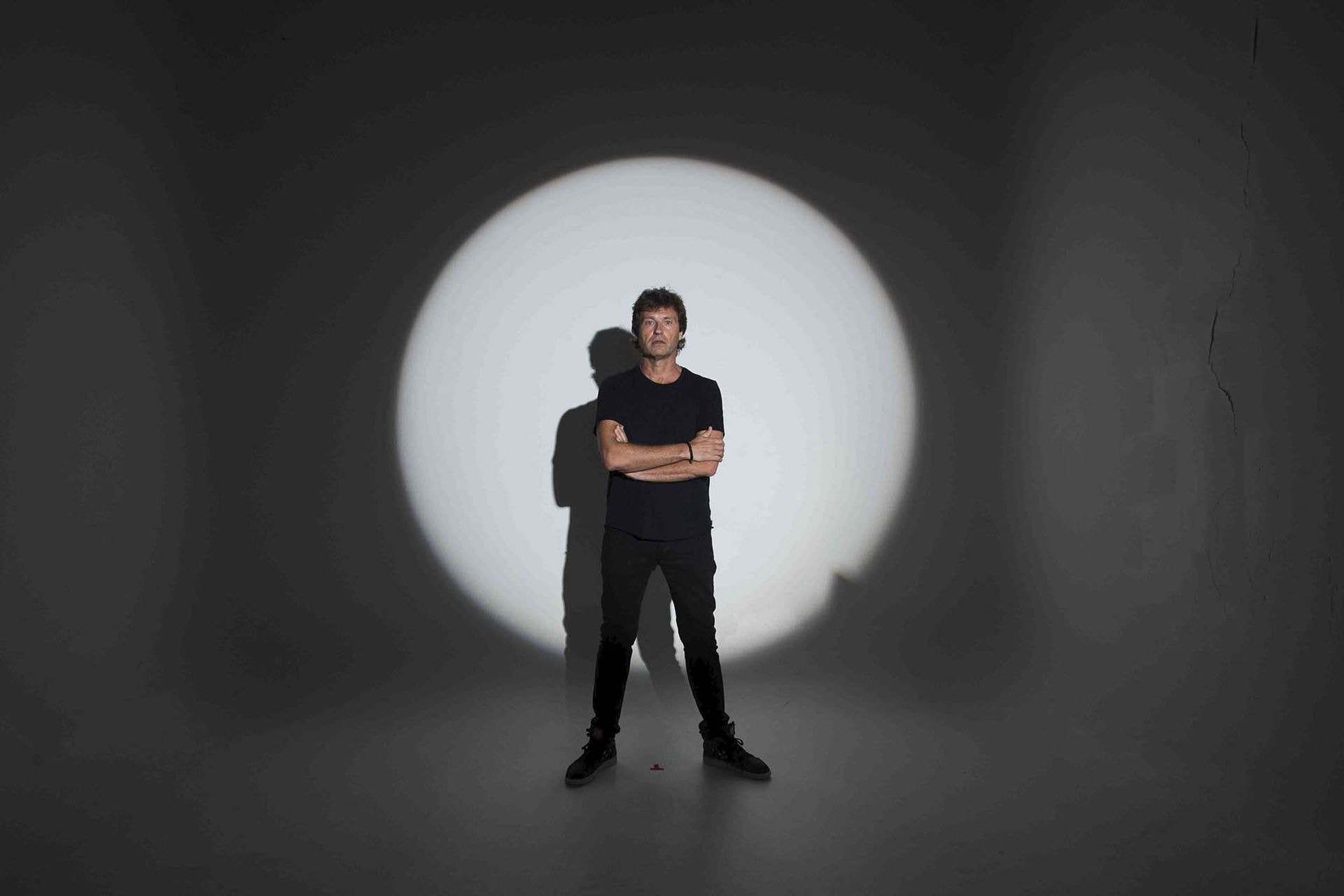
Turn of the century
A whole dance move that had been simmered, in stores to buy records, in small and somewhat marginal clubs, exploded towards a date that the world had been waiting for: 2000. The turn of the century and the hope of a certain renewal gave them possibility to mark raves in stadiums, in specialized radios, the diffusion of subgenres (breakbeat, jungle, progressive house), together with the certainty that a young people were accompanying and faithful. Pachá was the highest point of this new structure, the most famous club, with the best DJ’s, even with many international visits.
Thanks to the invitation of Paul Oakenfold to be his opening act on a tour, Cattaneo made his first appearances in the most important places in the world, and his presence (and his sound) did not go unnoticed by the producers. ,,When the tour ended , Paul’s manager told me that I would have a lot of work if I move to London. After four months I was living there.”
”In this industry, as in any other, there are always examples to follow and, more importantly, examples of what to avoid.”
As soon as he arrived, he was offered to be a resident of the Cream disco and what came next cannot be described in any other way than as his international consecration: he flew every week from England to Ibiza to work in Pachá, he became part of the top ten of the best DJ of the world, was consecrated in festivals like Creamfields, participated in another tour with Oakie, recorded with the best labels.
,,In the end, you find a way and a style of doing things, I guess it’s a mix of what you learned from all the people you worked with or came across. In this industry, as in any other, there are always examples to follow and, more importantly, examples of what to avoid’‘, says he who answered, over and over again, who always refused beer with no, thank you, I don’t want a beer, he wasn’t in rehab or anything like that, he just didn’t like it.
The growth was not only work: in 2005 he met Jackie, his wife, and quickly knew that he was falling in love. The next day he was already trying to quit smoking to have children with her, he did not want to be a smoking father. They had a two-year maxi version honeymoon, they traveled the world while he worked, they met pyramids, beaches, mountains, cities, until they settled in Barcelona and their daughters arrived. First Olivia, then April, and finally Mila.
How his schedule changed when he became a father and how was his return to Argentina in 2016 looked like, to everything else he also dedicated a few paragraphs on the final chapters (a special one was for that symphonic adventure that he led at the Teatro Colón in 2018). If, when he had gone to London, electronics was at its highest point of popularity in the country, on his return the situation was rather the opposite, almost post-Chromanesque. After the deaths at the Time Warp party, there was no place for dance in Buenos Aires.
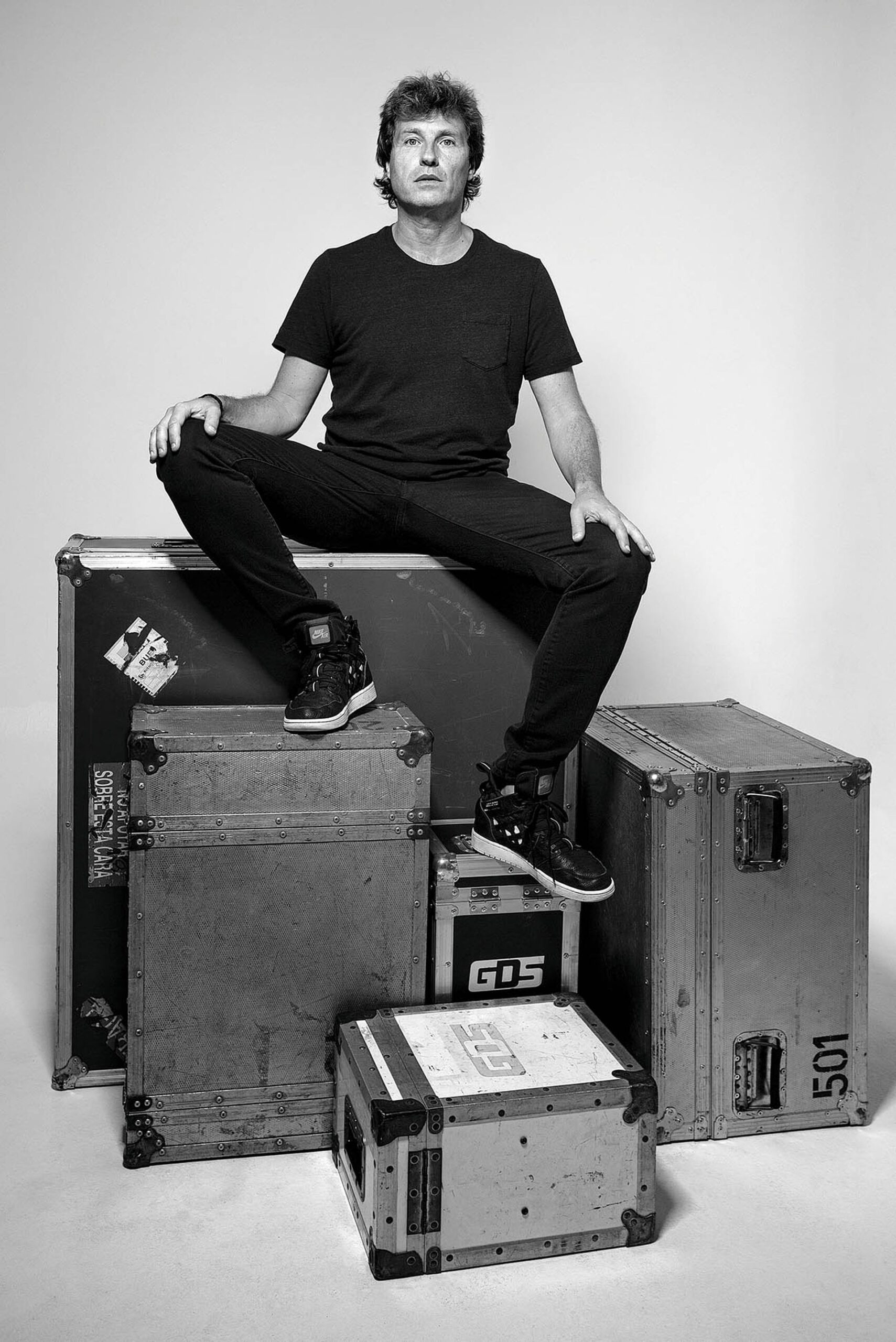
With patience and a master plan designed with his manager, Cruz Pereyra Lucena, Cattaneo expanded his scope: Córdoba, Mendoza, San Juan were added to his agenda and thousands of fans from neighboring provinces traveled to see him. In each place he found a special partner and that story, from artists and producers who trust their audience, was also a way to recognize those who don’t have an extractive relationship with electronic music. When it was time to return to Buenos Aires, the production stakes were higher than ever: open air, more space to dance, several hydration points, perfect and modern screens. Everything at his level, everything (the tickets, the stage, the shirts) with his name.
Sunsetstrip, his sunset show in February 2020, with 16,000 people, was surely the last massive electronic party before the pandemic. Like everyone else, he was at home, from where he made streaming for the benefit of the Red Cross. Why he is interested in collaborating in these causes, and also in other social aspects, he describes it almost at the end of The DJ’s Dream.
”The truth is that I did not want to put the book down, at one point they asked me to stop editing, as real writers do. I think it was all really worth it in the end.”
,,The book have different stages: first the interviews, then they gave me a draft, I corrected a lot, I remembered many more things that I had said and I sat down to write by myself (obviously with my limitations). Countless people came to my mind that I wanted to mention or at least thank. I took a few more weeks, the little activity of 2020 helped me to concentrate and reread. The truth is that I did not want to put the book down, at one point they asked me to stop correcting, as it happens to real writers. I think it was all really worth it in the end.”
Was the only idea he had, turn out to be clear? He insists that he was lucky to have had a passion from such a young age. It doesn’t matter if that passion is put to skateboarding, painting, writing or whatever, the only thing that matters is feeding it. Like when he waited in the snow to see Frankie Knuckles, like when he sold the car to see Europe. Nothing will come alone: enthusiasm and effort are partners, not polar opposites. You have to believe him.
Says the boy who armed with the typewriter the budgets for the parties at the Italian Club, the one who set the sunrises to music on the Pachá terrace, the one who travels the world and everywhere wants to hear it.
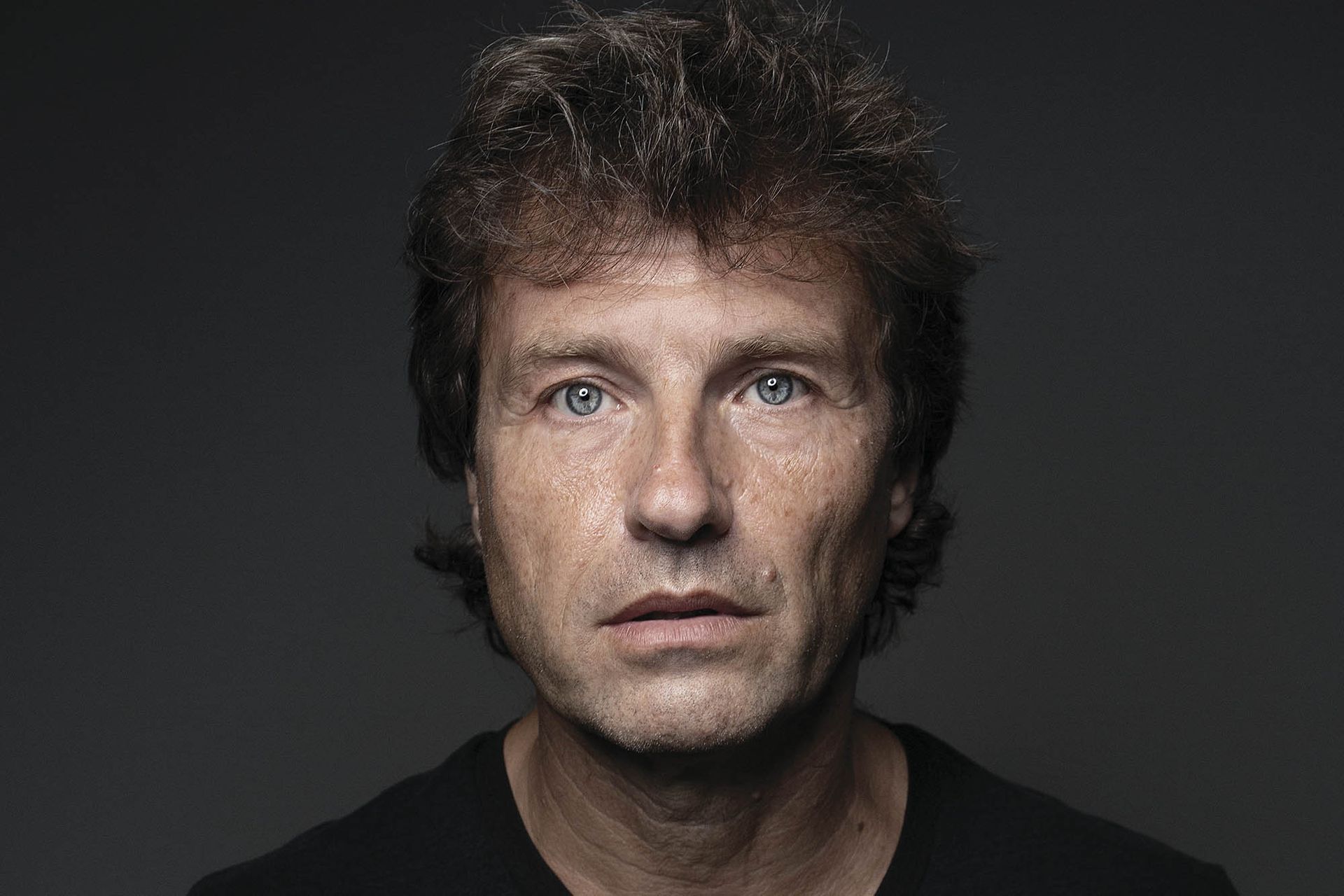
”Pont Lezica changed my life on a Friday”
,,One night everything changed. I remember it was a Friday, I don’t know why I have that so much in mind. Perhaps because of the relief of leaving the obligations of the week behind to take a little time and relax. At night, an unusual time to go to school, I went to a dance organized by the San Cirano High School. I did not expect too much from the event, I did not like any girl or was interested in finding a girlfriend. Shortly after arriving, I felt elevated. I was looking around and the rest didn’t seem as shocked as I was. Those of the secondary school were in theirs, in a more uprising plan that was far away from me. My friends, in the usual nonsense: having fun with each other or laughing about something. What were all my friends doing? How could they not realize how something fantastic was happening? It was not a coincidence or a miracle.
I couldn’t connect with anyone, I remember myself in a trance. For the first time, meters from me, I saw a disc jockey. It was as if a UFO had descended on the place where he played every day. It was also a preview of what would come years later: all my attention was on that figure who chose the right theme for each moment of the night, who had his own versions of songs we all knew, someone who managed the time.
He was much more than that: a professional, with headphones and boxes full of records, someone prepared to make people dance. It was the teacher, Alejandro Pont Lezica. There was no going back after that night. All the time with the Winco and, later, at the BGH, with Pablo and also with all the friends he invited to put music on, all of that began to make sense. My aunt Alicia had asked me what I wanted to be when I grew up and I couldn’t answer. Now I had an answer. I wanted to do what Alejo was doing that night. What was that job called? Disc jockey? I was going to transform into one as soon as possible, before Dad said no, before my sisters wanted to stop me. It was already decided. So it was. Alejandro knows this, because I already told him several times, Pont Lezica changed my life that Friday night.”
“Playing at the Colón made me lose weight”
,,On February 23, 2018, three hours before opening the room for the first time at the Teatro Colón, we made the only general rehearsal. It was not exactly a success, five times we had to stop to correct. An internal voice asked me why there were so many mistakes if we had more than a year to plan. I didn’t know what to answer and I was holding my head. If in other moments of stress I had lost sleep, this time what I lost were kilos, six, more precisely, which are very noticeable when I now see the photos. So many details in the songs, surely something could go wrong and, for a control freak like me, that’s fatal. Am I going to make it? Look at Gerardo Gardelín, the conductor, and wait for a sign? When I was half an hour away before going on the stage, I was in my dressing room, almost decomposed, and with many doubts about what was going to happen.
The Colón was full, they came from all the newspapers and portals and, much more important to me, there were my mother, my wife, my daughters and my sisters, also all my friends, colleagues, people from the industry. Very well dressed for the occasion, I was accompanied by those who had taken me there and, therefore, I wanted everything to be incredible. The bad vibes that several journalists had installed, openly opposing electronics entering the Colón weighed on me a bit.
”The Blade Runner” song, composed by Vangelis, marked the beginning. There was no escape. We played more than the ship that appears in the first minutes of the Ridley Scott film.
Instead of the sky of Los Angeles, in the middle of flames, we crossed the Buenos Aires night.”
Taken from: La Nacion article
Thanks to José Miguel Esses


